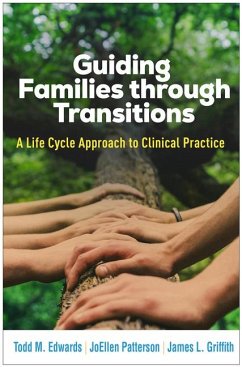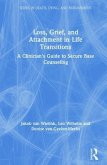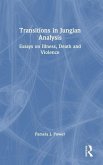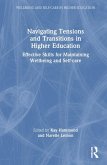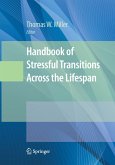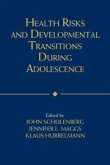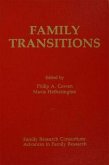James L. Griffith, Joellen Patterson, Todd M. Edwards
Guiding Families through Transitions
A Life Cycle Approach to Clinical Practice
James L. Griffith, Joellen Patterson, Todd M. Edwards
Guiding Families through Transitions
A Life Cycle Approach to Clinical Practice
- Gebundenes Buch
- Merkliste
- Auf die Merkliste
- Bewerten Bewerten
- Teilen
- Produkt teilen
- Produkterinnerung
- Produkterinnerung
An indispensable clinical resource and text, this book offers therapists evidence-based strategies to support families through life's inevitable transitions.
Andere Kunden interessierten sich auch für
![Loss, Grief, and Attachment in Life Transitions Loss, Grief, and Attachment in Life Transitions]() Jakob van WielinkLoss, Grief, and Attachment in Life Transitions181,99 €
Jakob van WielinkLoss, Grief, and Attachment in Life Transitions181,99 €![Guiding The Family Guiding The Family]() Bernice Bronia GrunwaldGuiding The Family192,99 €
Bernice Bronia GrunwaldGuiding The Family192,99 €![Transitions in Jungian Analysis Transitions in Jungian Analysis]() Pamela J PowerTransitions in Jungian Analysis183,99 €
Pamela J PowerTransitions in Jungian Analysis183,99 €![Navigating Tensions and Transitions in Higher Education Navigating Tensions and Transitions in Higher Education]() Navigating Tensions and Transitions in Higher Education192,99 €
Navigating Tensions and Transitions in Higher Education192,99 €![Handbook of Stressful Transitions Across the Lifespan Handbook of Stressful Transitions Across the Lifespan]() Handbook of Stressful Transitions Across the Lifespan270,99 €
Handbook of Stressful Transitions Across the Lifespan270,99 €![Health Risks and Developmental Transitions during Adolescence Health Risks and Developmental Transitions during Adolescence]() Health Risks and Developmental Transitions during Adolescence190,99 €
Health Risks and Developmental Transitions during Adolescence190,99 €![Family Transitions Family Transitions]() Family Transitions194,99 €
Family Transitions194,99 €-
-
-
An indispensable clinical resource and text, this book offers therapists evidence-based strategies to support families through life's inevitable transitions.
Hinweis: Dieser Artikel kann nur an eine deutsche Lieferadresse ausgeliefert werden.
Hinweis: Dieser Artikel kann nur an eine deutsche Lieferadresse ausgeliefert werden.
Produktdetails
- Produktdetails
- Verlag: Guilford Publications
- Seitenzahl: 304
- Erscheinungstermin: 29. April 2025
- Englisch
- Abmessung: 229mm x 152mm
- ISBN-13: 9781462557028
- ISBN-10: 1462557023
- Artikelnr.: 71903217
- Herstellerkennzeichnung
- Libri GmbH
- Europaallee 1
- 36244 Bad Hersfeld
- gpsr@libri.de
- Verlag: Guilford Publications
- Seitenzahl: 304
- Erscheinungstermin: 29. April 2025
- Englisch
- Abmessung: 229mm x 152mm
- ISBN-13: 9781462557028
- ISBN-10: 1462557023
- Artikelnr.: 71903217
- Herstellerkennzeichnung
- Libri GmbH
- Europaallee 1
- 36244 Bad Hersfeld
- gpsr@libri.de
Todd M. Edwards, PhD, LMFT, is Professor and Chair of the Marital and Family Therapy Program at the University of San Diego (USD). He is a Clinical Fellow and Approved Supervisor in the American Association for Marriage and Family Therapy and Editor of the International Journal of Systemic Therapy. In addition to his work at USD, Dr. Edwards has a private practice, where he works with individuals, couples, and families, and is a health coach through the RELINK program at the University of California, San Diego. JoEllen Patterson, PhD, LMFT, is Professor in the Marital and Family Therapy Program at the University of San Diego. She is also Associate Clinical Professor of Family Medicine at the University of California, San Diego, School of Medicine. Dr. Patterson received a Rotary International Scholarship to work at Cambridge University, as well as Fulbright Awards to work in Norway, Hong Kong, New Zealand, and Canada. She has published several books and has served on the editorial boards of leading family therapy journals. Her global work includes initiatives in Jordan and Ecuador. James L. Griffith, MD, is Professor of Psychiatry and Neurology and former Chair of the Department of Psychiatry and Behavioral Health at the George Washington University (GW) School of Medicine and Health Sciences, where he joined the faculty in 1994. As a psychiatric educator, Dr. Griffith has helped develop GW's psychiatry residency program into a national leader in refugee mental health, human rights advocacy, and global mental health research. Dually trained in psychiatry and neurology, he teaches psychiatry residents a curriculum that integrates humanistic psychiatry with psychopharmacology.
Preface
I. Conceptual Foundations
1. The Contexts of Time and System
2. The Family as an Interactive System
II. Life Cycle Transitions
3. Committed and Marital Relationships
4. The Transition to Parenthood
5. Risk And Resilience in Childhood: The Impact of Family Life
6. Adolescents and Their Parents in a Highly Connected World
7. Emerging Adults and Their Parents at Midlife
8. Elderhood
III. Life Cycle Disruptions and Diverse Family Forms
9. Separation and Divorce
10. Single-Parent Families and Stepfamilies
11. Coping with a Chronic Illness
12. Loss, Death, and Grief
References
Index
I. Conceptual Foundations
1. The Contexts of Time and System
2. The Family as an Interactive System
II. Life Cycle Transitions
3. Committed and Marital Relationships
4. The Transition to Parenthood
5. Risk And Resilience in Childhood: The Impact of Family Life
6. Adolescents and Their Parents in a Highly Connected World
7. Emerging Adults and Their Parents at Midlife
8. Elderhood
III. Life Cycle Disruptions and Diverse Family Forms
9. Separation and Divorce
10. Single-Parent Families and Stepfamilies
11. Coping with a Chronic Illness
12. Loss, Death, and Grief
References
Index
Preface
I. Conceptual Foundations
1. The Contexts of Time and System
2. The Family as an Interactive System
II. Life Cycle Transitions
3. Committed and Marital Relationships
4. The Transition to Parenthood
5. Risk And Resilience in Childhood: The Impact of Family Life
6. Adolescents and Their Parents in a Highly Connected World
7. Emerging Adults and Their Parents at Midlife
8. Elderhood
III. Life Cycle Disruptions and Diverse Family Forms
9. Separation and Divorce
10. Single-Parent Families and Stepfamilies
11. Coping with a Chronic Illness
12. Loss, Death, and Grief
References
Index
I. Conceptual Foundations
1. The Contexts of Time and System
2. The Family as an Interactive System
II. Life Cycle Transitions
3. Committed and Marital Relationships
4. The Transition to Parenthood
5. Risk And Resilience in Childhood: The Impact of Family Life
6. Adolescents and Their Parents in a Highly Connected World
7. Emerging Adults and Their Parents at Midlife
8. Elderhood
III. Life Cycle Disruptions and Diverse Family Forms
9. Separation and Divorce
10. Single-Parent Families and Stepfamilies
11. Coping with a Chronic Illness
12. Loss, Death, and Grief
References
Index

